Travel Emergency

What should female travelers do in case of emergency abroad ?
Female travelers should prepare for emergencies abroad by researching their destination, having a travel plan, registering with their embassy, preparing an emergency kit, and learning basic language skills. In case of an emergency, they should assess the situation, seek help, take protective measures, and communicate with loved ones. After dealing with the immediate emergency, they should seek medical attention, report the incident, and reflect on their response. Additional tips include trusting their instincts, considering travel insurance, and staying connected.

How important is it to have a portable emergency kit when traveling abroad ?
**The Importance of a Portable Emergency Kit for Traveling Abroad** Embarking on an international journey requires preparation, especially in handling unforeseen events. Here's why carrying a portable emergency kit is crucial: 1. **Preparedness for Unexpected Circumstances**: It helps manage medical emergencies, natural disasters, and travel delays effectively. 2. **Components of an Ideal Emergency Kit**: Includes first aid supplies, hygiene items, nutrition, lighting, important documents, and protective gear. 3. **Customization Based on Destination**: Tailor the kit to climate considerations and location-specific needs for better preparedness. 4. **Peace of Mind**: Being prepared offers peace of mind, allowing focus on enjoying the trip rather than worrying about potential issues.

What does a typical travel insurance cover ?
Travel insurance typically covers medical expenses, trip cancellation and interruption, baggage loss and delay, accidental death and dismemberment, and emergency assistance services. Optional extras may include coverage for sports and adventure activities, rental car damage, and travel delay. It's important to consider the specific needs of your trip when selecting a policy and to carefully read the details to understand coverage limits and exclusions.

Do all travel insurance policies offer 24/7 emergency assistance ?
Travel insurance policies vary in the level of emergency assistance they offer, with many providing 24/7 support for medical emergencies, lost documents, and other crises. However, it's crucial to read the policy terms carefully to understand any limitations or exclusions. Consider factors like coverage limits, deductibles, and the insurer's reputation when selecting a policy to ensure you have the right support during travel.
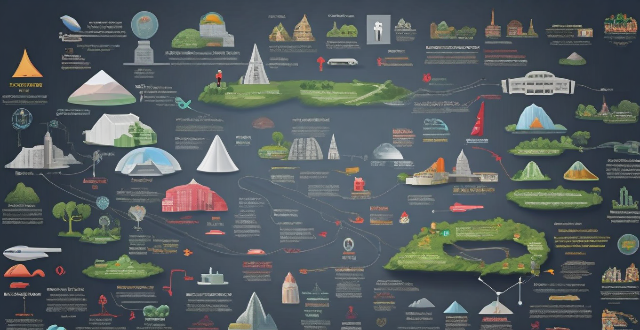
How much does travel insurance usually cost ?
The cost of travel insurance can vary greatly depending on factors such as destination, duration of trip, coverage level, and individual characteristics like age and health condition. To find the best policy for your needs, compare policies from different insurers, look for discounts, consider annual plans if you travel frequently, and review exclusions and limitations carefully.

Is it worth buying travel insurance for domestic trips ?
The article discusses the importance of travel insurance for domestic trips. It suggests that while it may not always be necessary, it can provide an additional layer of protection and peace of mind, especially for those embarking on adventurous or expensive trips. The article provides a list of key points to consider when deciding whether to purchase travel insurance, including risk assessment, coverage details, cost analysis, personal circumstances, and peace of mind. It also lists the benefits of travel insurance for domestic trips, such as medical coverage, trip interruption/cancellation, baggage loss/theft, emergency evacuation, and accidental death and dismemberment. The article concludes by suggesting that the decision to buy travel insurance depends on various factors such as the nature of the journey, existing coverage, and personal preferences.
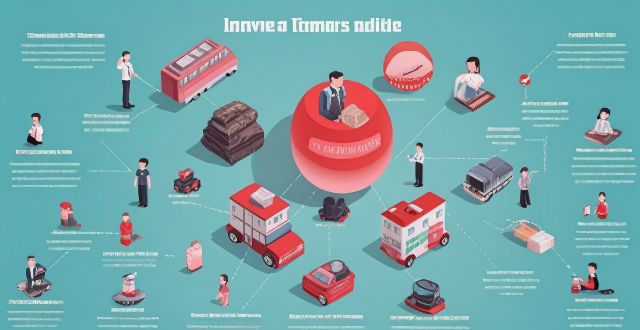
How do I compare different travel insurance policies ?
The article provides a comprehensive guide on how to effectively compare different travel insurance policies. It outlines four key steps: determining needs, checking coverage and benefits, comparing prices and deductibles, and reading reviews and asking for recommendations. The article emphasizes the importance of considering factors such as destination, duration, activities, health, and budget when determining needs. It also highlights the importance of looking for policies that provide comprehensive coverage for medical expenses, trip cancellation and interruption, baggage loss and delay, emergency evacuation and repatriation, and travel assistance services. Finally, it suggests comparing prices and deductibles and seeking out reviews and recommendations from others to make an informed decision. Overall, the article offers valuable insights into the process of selecting the right travel insurance policy.
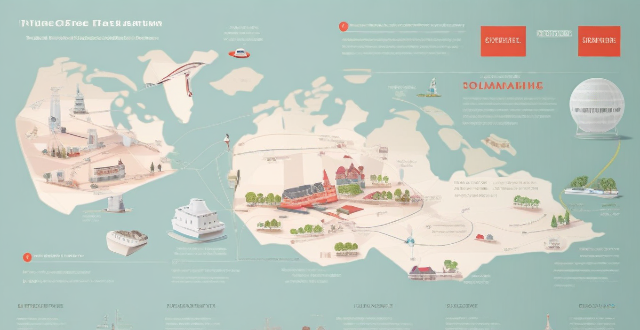
What is the best travel insurance for international trips ?
When it comes to choosing the best travel insurance for international trips, there are several factors to consider. Look for a policy that covers medical expenses, trip cancellation/interruption, baggage and personal effects, emergency evacuation and repatriation, travel delay and missed connection, and identity theft protection. Consider the deductibles and limits of each coverage type within the policy. Pay attention to exclusions and limitations such as pre-existing conditions, adventure sports and activities, and geographical limitations. Look for a reputable insurer with excellent customer service ratings and a smooth claims process. Compare prices across different insurers and policies to find one that fits your budget without compromising on essential coverage. By taking into account these key points, you can choose a policy that provides adequate protection and peace of mind for your next adventure abroad.
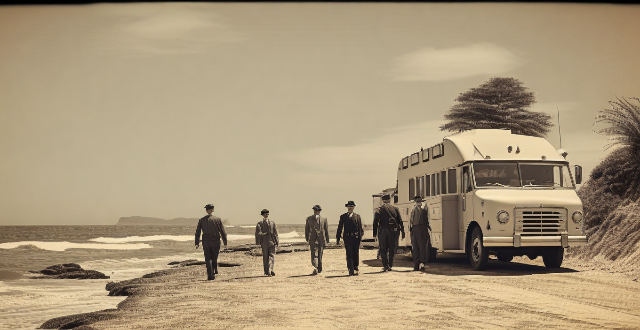
Will travel insurance cover me if I get sick while abroad ?
Travel insurance can cover travelers if they get sick while abroad, but coverage depends on the policy's terms and conditions. Factors to consider include coverage limit, deductible, pre-existing conditions, exclusions, emergency evacuation/repatriation, and claims process. When choosing a travel insurance policy, assess your needs, compare policies, read reviews, purchase early, and consult a professional if necessary.

How quickly can I get reimbursed by my travel insurance company ?
The time it takes to get reimbursed by your travel insurance company depends on the type of claim you are filing and the policies of your insurance provider. Emergency medical claims can be processed within a few days to a week, while non-medical claims can take longer depending on the nature of the claim and the required documentation. To expedite the process, it's important to read your policy carefully, keep all receipts and documentation, contact your travel insurance company promptly, submit complete and accurate information, and follow up on your claim if necessary. By following these tips, you can help ensure a smoother and faster reimbursement experience.

How long before my trip should I buy travel insurance ?
Travel insurance is a crucial component of any trip, offering coverage for unexpected events such as medical emergencies, trip cancellations, and lost luggage. The best time to buy travel insurance depends on various factors, including the timing of your purchase, trip details, personal situation, and research. Timing matters when buying travel insurance. It's recommended to buy early for peace of mind, better pricing, and more options. However, waiting too long can increase the risk of forgetting, limit options, and create coverage gaps. Trip details such as destination, length of stay, and activities should also be considered. Personal situation factors like health status, financial protection, and travel companions' needs should also influence the timing of your purchase. Practical steps include researching policies, comparing online, reading reviews, consulting a broker, completing an online application, confirming details, and keeping records. Ideally, travel insurance should be purchased at least a few weeks before the trip to ensure adequate coverage and avoid last-minute stressors.

What should be included in a basic emergency kit ?
A basic emergency kit should include essential items such as water, non-perishable food, a first aid kit, warm clothing and bedding, lighting and communication tools, a multipurpose tool, cash, personal documents, and a map. The contents may vary depending on the type of emergency and household size. It is important to regularly review and update the kit to ensure it remains effective.
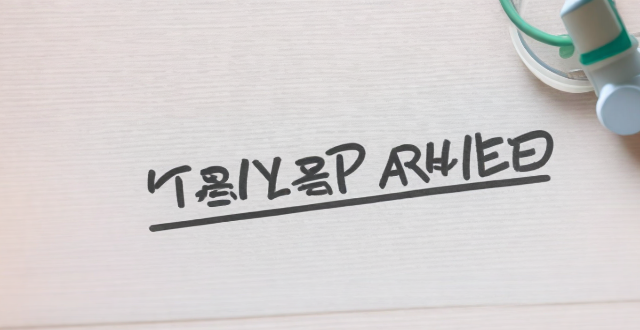
How can I be prepared for medical emergencies while traveling abroad ?
This text provides advice on how to be prepared for medical emergencies while traveling abroad. It suggests researching healthcare options, getting travel insurance, packing a travel medicine kit, learning basic first aid, knowing emergency numbers, staying healthy, and keeping important information handy.

Can I purchase travel insurance after booking my trip ?
The article discusses the possibility of purchasing travel insurance after booking a trip. It emphasizes that buying travel insurance early provides more comprehensive coverage, peace of mind, and potentially better prices. To purchase travel insurance after booking, one should research different policies, contact their travel agent or insurance company, provide relevant information, read the policy details carefully, and keep documentation safe. The article concludes that buying travel insurance early is generally recommended for optimal coverage and peace of mind during travels.

How do I prepare a travel first aid kit for my next trip ?
When preparing for your next adventure, it's essential to pack a travel first aid kit. This will ensure that you are prepared for any unexpected injuries or illnesses that may occur while away from home. Here are some steps to follow when creating your own travel first aid kit: 1. Choose the right bag or container that is durable, compact, and easy to carry. A waterproof bag with multiple compartments and pockets is ideal as it allows for efficient organization of supplies. 2. Pack essential medical supplies such as bandages, antiseptic wipes, gauze pads, adhesive tape, and scissors. These items are crucial for treating cuts, scrapes, and other minor injuries. Include pain relievers, allergy medication, and motion sickness pills. 3. If taking regular medications, bring enough to last throughout the trip. Over-the-counter drugs like antacids, laxatives, and anti-diarrheal pills should also be packed, along with any prescription medications needed. 4. Depending on the destination and activities planned, specialized items may be necessary. For example, insect repellent, sunscreen, and blister kits are useful for hiking or camping trips. Anti-malarial medication and water purification tablets are important for tropical climates. 5. Customize the travel first aid kit based on individual needs. If allergies or chronic conditions exist, include appropriate medications and supplies. Don't forget to pack a small first aid manual or guidebook for reference in case of an emergency.
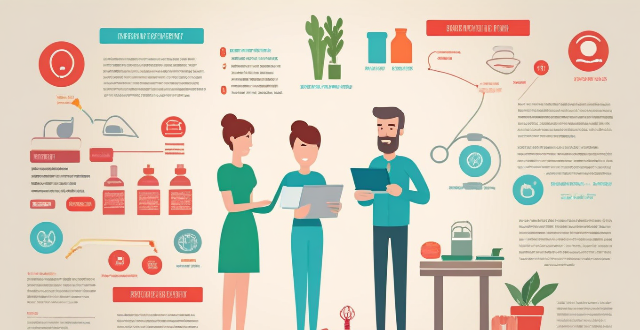
How can I ensure the safety of my family during an emergency ?
To ensure the safety of your family during an emergency, create an emergency plan that includes a contact list, meeting place, escape routes, and assigned responsibilities. Maintain essential supplies such as food, water, medical supplies, and an emergency kit. Stay informed about local emergencies through news sources, alert apps, and local alert systems. Secure your home by inspecting for hazards, reinforcing doors and windows, and having smoke detectors and fire extinguishers. Educate your family on self-defense techniques, first aid and CPR, and discuss potential emergencies.

How can I prepare for an emergency situation ?
The article provides a comprehensive guide on how to prepare for an emergency situation. It emphasizes the importance of being prepared for emergencies, which can strike at any time and pose a threat to the safety of individuals and their loved ones. The first step in preparing for an emergency is to assess the risks that are most likely to affect you. This involves identifying potential natural disasters or man-made emergencies that could occur in your area. Once you have identified these risks, you can begin to develop a plan for how to respond. The next step is to create an emergency kit that contains all the essential items you will need in case of an emergency. This includes water, non-perishable food, a first aid kit, a flashlight, warm clothing, a map of the area, a cell phone with charger, cash, and important documents. Having a plan in place is also crucial in ensuring that everyone knows what to do in case of an emergency. Your plan should include a designated meeting place, an evacuation route, a communication strategy, and a backup plan. Staying informed about local weather reports and news alerts is another important aspect of emergency preparedness. Signing up for community warning systems can also help you stay informed about potential emergencies in your area. Finally, practicing your emergency plan regularly can help ensure that everyone remains calm and focused during an actual emergency situation. This could involve conducting regular fire drills or practicing evacuation routes.

How important is communication during an emergency response ?
Communication is a critical component of any emergency response. It helps to coordinate efforts, gather information, make decisions, and ensure the safety of all parties involved. Effective communication can streamline the response process and avoid confusion or misunderstandings. The importance of communication during an emergency response includes coordination, information gathering, decision making, and safety. Best practices for communication during an emergency response include using clear and concise language, establishing a chain of command, using multiple channels of communication, and maintaining situational awareness. By following these best practices, you can help to streamline the response process and minimize damage. Remember that effective communication is essential for ensuring the safety and well-being of everyone involved in emergencies.

What are some essential travel safety tips for international tourists ?
Traveling to a foreign country can be an exciting adventure, but it's important to prioritize safety during your journey. Here are some essential travel safety tips for international tourists: ## Research Your Destination Before embarking on your trip, research the destination thoroughly. Familiarize yourself with local customs, laws, and cultural norms. This will help you avoid any misunderstandings or unintentional offenses that could put you in harm's way. ### Learn Basic Phrases in the Local Language Knowing how to say simple phrases like "hello," "goodbye," "thank you," and "I don't understand" in the local language can go a long way in helping you communicate with locals and navigate your way around. ### Check the Weather Forecast Be prepared for any weather conditions by checking the forecast before you leave. Pack appropriate clothing and gear to ensure your comfort and safety throughout your trip. ## Stay Informed About Safety Concerns Stay up-to-date on any safety concerns or travel warnings related to your destination. The U.S. Department of State maintains a website with current information on safety issues and advisories for travelers. ### Register With Your Embassy or Consulate Register your travel plans with your embassy or consulate so they can contact you in case of an emergency or natural disaster. This is especially important if you plan to visit remote areas where communication might be limited. ## Be Cautious With Your Belongings When traveling abroad, it's crucial to take precautions to protect your belongings from theft or loss. Here are some tips to keep your valuables safe: ### Keep Your Valuables Close at Hand Carry only what you need when sightseeing or exploring new places. Keep your passport, cash, credit cards, and other valuables secure in a money belt or hidden pocket. ### Use Hotel Safes Wisely Hotel safes are convenient for storing valuable items while you're out and about. However, be aware that not all hotel safes are foolproof. Some may have vulnerabilities that could allow thieves to access your belongings. Always exercise caution when using hotel safes and consider bringing along a portable lock for added security. ### Be Mindful of Your Surroundings Stay alert and aware of your surroundings at all times. Avoid displaying expensive jewelry or electronics in public places, as these items can attract unwanted attention from pickpockets and thieves. If possible, try to blend in with the local crowd by dressing conservatively and avoiding flashy accessories. ## Follow Local Laws and Customs Respecting local laws and customs is essential for staying safe while traveling abroad. Here are some tips to help you navigate this aspect of international travel: ### Obey Local Laws Familiarize yourself with the legal system and laws of the country you're visiting. This includes understanding the penalties for breaking the law, which can vary widely depending on the country. Remember that what might be legal in your home country could be illegal elsewhere. ### Respect Local Customs Be mindful of local customs and traditions when interacting with locals. Dress appropriately for religious sites and respect their rules regarding photography and behavior. Additionally, be aware of social norms regarding physical contact (such as handshakes or hugs) and follow them accordingly. ## Seek Medical Attention When Needed If you become ill or injured during your trip, seek medical attention promptly. Here are some tips to help you stay healthy while traveling: ### Pack a First Aid Kit Bring a basic first aid kit with essential items such as bandages, antiseptic wipes, pain relievers, and any prescription medications you might need. This will help you handle minor injuries and illnesses without having to search for medical supplies in an unfamiliar place. ### Know Where to Go for Medical Help Research nearby hospitals and clinics before you leave home so you know where to go if you need medical assistance during your trip. It's also a good idea to purchase travel insurance that includes coverage for medical emergencies.

What is the impact of communication interference on emergency services ?
Communication interference can significantly impact emergency services by delaying response time, impairing coordination, increasing risk to responders and victims, disrupting technology, and negatively affecting public perception. It is crucial for emergency services to prioritize reliable communication systems and protocols to minimize the impact of interference and ensure effective responses to emergencies.
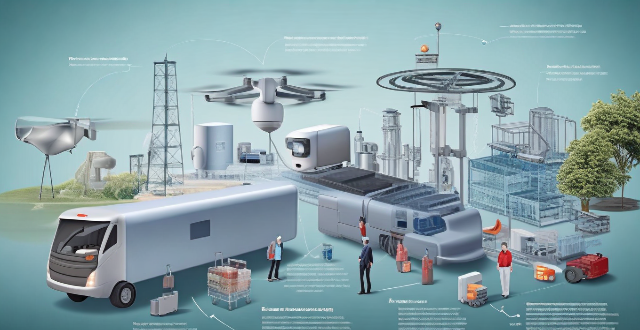
What role does technology play in emergency response ?
The article discusses the various ways technology is used in emergency response, including communication via instant messaging platforms and two-way radios, GPS tracking for vehicles and personnel, data analysis for crime and fire trends, and the use of drones and robots. Technology has made emergency response more efficient and effective by improving communication, location tracking, data analysis, and automation.

How do I train my employees for emergency situations ?
Training employees for emergency situations is crucial to ensure their safety and minimize the impact of emergencies on your business. Here's a summary of the key steps involved: 1. Identify potential emergencies that could occur in your workplace, such as fire, medical emergencies, natural disasters, workplace violence, and chemical spills or hazardous materials incidents. 2. Develop an emergency plan that outlines the steps employees should take during each type of emergency. This plan should include evacuation procedures, first aid protocols, contact information for emergency services, safe locations, and procedures for accounting for all employees after an emergency. 3. Conduct regular emergency drills to ensure that employees are familiar with the emergency plan and know what to do in case of an emergency. Drills should be conducted at least annually and cover all types of emergencies identified in the emergency plan. 4. Provide training on how to use safety equipment such as fire extinguishers, first aid kits, and safety goggles. This training should be provided during new employee orientation and refresher courses should be offered regularly. 5. Encourage open communication between employees and management regarding safety concerns and suggestions for improvement. This can be done through regular safety meetings, suggestion boxes, or anonymous surveys. By following these steps, you can create a safe and prepared workforce that is ready to handle any emergency situation.

How can I improve my company's emergency response capabilities ?
Improving your company's emergency response capabilities is crucial for ensuring the safety of employees, customers, and assets. Here are some steps you can take to enhance your organization's ability to handle emergencies effectively: 1. Conduct a Risk Assessment 2. Develop an Emergency Response Plan 3. Train Employees and Conduct Drills 4. Invest in Technology and Equipment 5. Maintain a Culture of Safety

How can I create an emergency evacuation plan for my family ?
Creating an emergency evacuation plan is crucial for the safety of your family during unexpected events such as natural disasters, fires, or other emergencies. Here are some steps to help you create a comprehensive emergency evacuation plan: 1. Identify potential risks that could affect your home and community. 2. Gather important information including contact information, medical information, insurance information, and financial information. 3. Determine the best evacuation routes from your home in case of an emergency. 4. Choose a meeting place outside of your home where your family can regroup in case of an emergency. 5. Practice your emergency evacuation plan with your family on a regular basis. 6. Stay informed about potential risks and updates from local authorities.
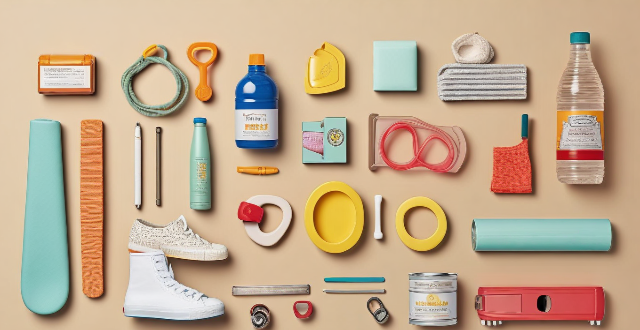
Are there any special considerations for creating an emergency kit for children ?
Special considerations for creating an emergency kit for children include age-appropriate items, comfort items, snacks and water, clothing and footwear, and entertainment. It is important to tailor the contents of the kit to the child's needs and abilities, and include items that can help to calm and reassure the child during an emergency situation.

What actions are being taken globally to address the climate emergency ?
The climate emergency is a pressing issue caused by human activities leading to global warming. International agreements like the Paris Agreement aim to limit global warming, and many countries have implemented national policies such as carbon pricing and renewable energy mandates. Corporations are also taking actions to reduce emissions and invest in clean energy. Addressing the climate emergency requires a global effort from all levels of society.

What are the key steps to take during an emergency evacuation ?
During an emergency evacuation, it is important to stay calm and alert, follow evacuation procedures, gather essential items, check for hazards, help others, listen to instructions from authorities, move quickly but safely, and assemble at designated areas. Staying calm helps in thinking clearly and making quick decisions, while being alert means paying attention to surroundings and instructions. Familiarizing with building's evacuation procedures beforehand, looking for exit signs, avoiding elevators, and using stairs are crucial. Gathering important documents, medications, and other essential items on the way out is also important. Checking for potential hazards such as fire, smoke, or structural damage, and seeking assistance from emergency personnel if a path is blocked is necessary. Helping others who may need assistance, remaining together as a group, and staying in contact throughout the evacuation process is recommended. Listening carefully to instructions given by authorities or emergency personnel is crucial as they may provide additional information about the situation or direct to specific locations for safety or further assistance. Moving quickly but avoiding running or pushing others, watching your step to avoid tripping or falling, especially if there are obstacles or debris on the ground is important. Proceeding to the designated assembly area where authorities can take attendance and provide further instructions, and not returning to the building until instructed to do so by authorities is also recommended.

What is the best way to store an emergency kit in a small apartment ?
When it comes to emergency preparedness, having an emergency kit is essential. However, if you live in a small apartment, finding the space to store all the necessary items can be challenging. Here are some tips on how to store an emergency kit in a small apartment: Determine the type of emergency kit you need, choose the right container, organize your kit, and store it properly. Keep your emergency kit in an easily accessible location, avoid storing it under heavy objects or in areas that may be blocked by debris during an emergency, check it regularly to ensure that items are still usable and up-to-date, replace any expired items promptly, and consider storing additional copies of important documents in your emergency kit. By following these tips, you can effectively store an emergency kit in a small apartment while still being prepared for any potential emergencies.
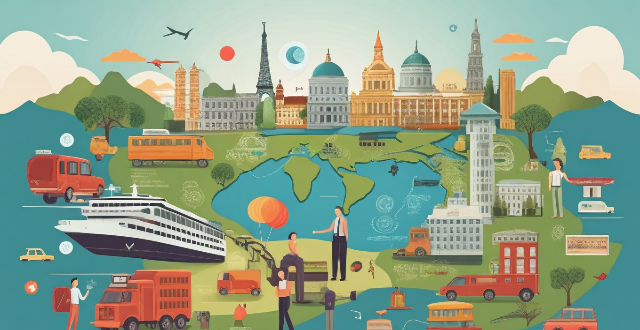
What are the benefits of participating in adventure travel activities ?
Adventure travel activities offer various benefits that positively impact physical, mental, and emotional well-being. These activities improve cardiovascular fitness, muscle strength, and weight management. They also reduce stress, boost self-confidence, and enhance creativity and problem-solving abilities. Adventure travel activities foster social interaction, personal growth, and improved mood and happiness.

Can you explain the hierarchy of safety signage (i.e., prohibition, warning, mandatory, and emergency) ?
The hierarchy of safety signage is divided into four categories: prohibition, warning, mandatory, and emergency. Prohibition signs indicate actions that are not allowed, while warning signs alert individuals to potential hazards. Mandatory signs indicate required actions for safety, and emergency signs provide critical information during emergencies. Understanding this hierarchy is crucial for creating a safe work environment.